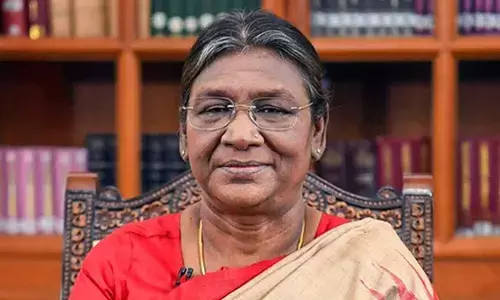Medical boards for access to abortion untenable: Ground Report

Medical boards for access to abortion untenable: Ground Report (Photo/IANS)
The Centre for Justice, Law and Society (CJLS), Jindal Global Law School has undertaken a comprehensive study of the district-wise availability and accessibility of specialist doctors
New Delhi: The Centre for Justice, Law and Society (CJLS), Jindal Global Law School has undertaken a comprehensive study of the district-wise availability and accessibility of specialist doctors (obstetrician/gynaecologists, paediatricians, and radiologists) across all Indian states and union territories, and the ramifications of the paucity of such doctors in rural, urban, and scheduled regions.
The purpose of this study was to closely analyse the shortage of specialists in the country and thereby explore the feasibility of setting up Medical Boards as proposed in the Medical Termination of Pregnancy (Amendment) Bill, 2020.
On March 17, 2020, the Lok Sabha passed the Medical Termination of Pregnancy (Amendment) Bill, 2020. Among other reforms, the Bill proposes the constitution of Medical Boards consisting of at least three specialist doctors along with other members as designated by the state or union territory. These Boards will be empowered to determine whether a pregnancy that has advanced beyond 24 weeks can be terminated, provided the foetus is diagnosed with 'abnormalities'. The Bill is set to be introduced in the Rajya Sabha in the upcoming budget session.
This study by CJLS revealed, first, that there is an absence of data for Primary Health Centres (PHCs) due to which our research had to be limited to Secondary Health Centres (SHCs). It covered the time period from 2015 to 2019 and found that there is an abysmal shortage of specialist doctors and healthcare facilities in India, a result of poor investment in public healthcare (1.6% of GDP in of 2019-20, which is among the lowest in the world). On average, Indian states and union territories recorded a shortfall of 80% of obstetricians and gynaecologists, making the setting up of functional Medical Boards practically impossible.
Additionally, a region-wise analysis shows that many states have a near complete absence in the availability of certain specialists, with a shocking 100% shortfall of paediatricians in Arunachal Pradesh, Meghalaya, Mizoram and Sikkim. Similarly, states such as Himachal Pradesh recorded a 98% shortfall in obstetricians/gynaecologists, who are one of the specialists required for the Medical Board.
C. Rajkumar, Founding Vice Chancellor O.P. Jindal Global University, emphasized the importance of this research in establishing the challenges of constituting Medical Boards at a state or district level. He noted that "this study highlights the shortcomings of the healthcare system in India and the need to invest in it to ensure that healthcare service delivery, particularly for reproductive rights, is easily accessible and affordable to all persons."
Medical Boards were never envisaged in the Medical Termination of Pregnancy Act in 1971, and the law makes no mention of any third-party authorisation for abortion. These Boards are unconstitutional and violate the fundamental rights of pregnant persons by subjecting them to multiple invasive examinations and causing unnecessary delays in the termination process. The
right to terminate a pregnancy should vest with the pregnant person and Indian jurisprudence has established this through cases such as Puttaswamy v. Union of India, Navtej Johar v. Union of India and Joseph Shine v. Union of India where the Supreme Court recognized the rights to privacy, dignity, equality, and sexual and reproductive autonomy. These bureaucratic authorization requirements have been also recognized as major barriers to accessing safe and legal abortion services under international law.
Dipika Jain, the lead author of the study, stated that "The MTP Bill is not set in a rights-based framework and Medical Boards are draconian and invasive as they strip away autonomy from the pregnant person. Our study indicates a severe lack of doctors across India and this will make the setting up of Boards unfeasible. Even if the Boards are set up, pregnant persons who are in more remote areas of the country will incur many costs in travelling and this will add to their financial burden. This legal reform will make abortion to access more challenging for many people, especially those from marginalised groups."
The human rights violations caused due to denial of accessible healthcare services will be exacerbated by the invasive and prolonged authorisation processes of Medical Boards. Thus, it is imperative that the Government sends the MTP Amendment Bill to the Standing Committee for further deliberation with multiple stakeholders to ensure that it a rights-based legislation.














